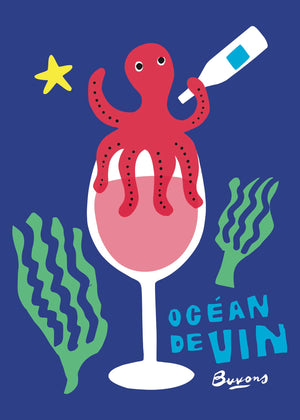
Grapes: Chardonnay
Region: Montgueux, Aube, Champagne, France
Vintage: NV
Viticulture: Organic
Soils: Chalk + Clay
Yeasts: Native
Vinification: This wine is a blend of 2 or 3 parcels (not always the same parcels). The wine is fermented in stainless steel tanks for about 8 months.
Aging: Aged for 8 years on the lees, then disgorged.
Fining or Filtering: None
Dosage: 0 g/l
Notes from the Importer: Jacques Lassaigne is a 4.7 hectare family vineyard located in Montgueux. The vineyards boast prime southeastern exposure & consist primarily of Chardonnay vines (94%) & the rest is made up of Pinot Noir (6%). The Montgueux vineyard sites were originally held for the Montrachet of Champagne & are located near the gates of Troyes—the former capital of Champagne. The terroir in Montgueux is nearly identical to the growing sites found further north in le Mesnil, as they share the same limestone vain —this is exceptional terroir for making great champagne. The non-vintage Blanc de Blanc is a blend of nine different vineyard sites & two successive vintages.
Emmanuel Lassaigne, Jacques’ son who now runs the vineyard, began working the vines in 1999, and made the bold decision to craft wines from individual parcels. At the time his local neighbors thought him a fool and didn’t understand the method behind his madness. Emmanuel makes all the important decisions with the wine virtually alone, and experiments boldly in ways that baffle us with their courageousness, for when he decides to make a change, he isn’t able to fully realize the results of that change for another 3-4 years.
The initial tank or barrel fermentations of all Emmanuel’s wine is carried out with only indigenous yeast. He sulfurs minimally at press to prevent oxidation, and then never adds any sulfur again. Emmanuel disgorges all the bottles by hand himself, a very uncommon practice in Champagne, where machine disgorgement is the norm. He developed this technique so he wouldn’t have to top up the bottles after disgorgement.
While some champagne houses release a vintage cuvée only when conditions are what they deem best, Emmanuel makes a vintage cuvée every single year, to display the variation each year brings to the wines. He says the results often surprise even him, certain vintages he thought the wine was lackluster, but when he revisits that wine several years down the road he discovers the wine just needed time to come into its own and is in fact one of his favorites.







